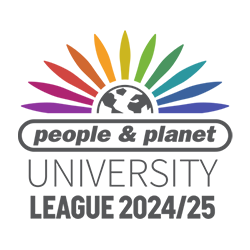-
Study
-
Undergraduate
- Search for a Course
- Undergraduate Open Day & Events
- Application Guides
- Northumbria University UCAS Exhibitions
- Foundation Years
- Undergraduate Fees & Funding
- School & College Outreach
- Continuing Professional Development
-
Postgraduate
- Postgraduate Study Degree
- Postgraduate Research Degrees
- Postgraduate Open Days and Events
- Postgraduate Fees & Funding
- Flexible Learning
- Thinking about a Masters?
- Continuing Professional Development
- Change Direction
-
Student Life
- The Hub - Student Blog
- Accommodation
- Life in Newcastle
- Support for Students
- Careers
- Information for Parents
- Students' Union
- Northumbria Sport
- Be Part of It
-
-
International
International
Northumbria’s global footprint touches every continent across the world, through our global partnerships across 17 institutions in 10 countries, to our 277,000 strong alumni community and 150 recruitment partners – we prepare our students for the challenges of tomorrow. Discover more about how to join Northumbria’s global family or our partnerships.
View our Global Footprint-
Applying to Northumbria
- European Union
- Our London Campus
- Northumbria Pathway
- International Events
- Entry Requirements and Country Representatives
- Global Offices
-
Northumbria Language Centre
- Faculty Requirements
- Acceptable English Requirements
- Pre-sessional English Language and Study Skills
- Academic Language Skills Programmes (ALS)
-
International Fees, Funding & Scholarships
- International Undergraduate Fees
- International Undergraduate Funding
- International Masters Fees
- International Masters Funding
- International Postgraduate Research Fees
- International Postgraduate Research Funding
- International Money Matters
-
Life at Northumbria
- International student support
- Careers
-
International Mobility
- Current Northumbria Students
- Incoming Exchange Students
-
-
Business
Business
The world is changing faster than ever before. The future is there to be won by organisations who find ways to turn today's possibilities into tomorrows competitive edge. In a connected world, collaboration can be the key to success.
More on our Business Services -
Research
Research
Northumbria is a research-rich, business-focused, professional university with a global reputation for academic quality. We conduct ground-breaking research that is responsive to the science & technology, health & well being, economic and social and arts & cultural needs for the communities
Discover more about our Research -
About Us
-
About Northumbria
- Our Strategy
- Our Staff
- Place and Partnerships
- Student Profiles
- Alumni Profiles
- Leadership & Governance
- Academic Departments
- University Services
- History of Northumbria
- Contact us
- Online Shop
-
-
Alumni
Alumni
Northumbria University is renowned for the calibre of its business-ready graduates. Our alumni network has over 246,000 graduates based in 178 countries worldwide in a range of sectors, our alumni are making a real impact on the world.
Our Alumni - Work For Us
What will I learn on this module?
The module aims to develop a critical appreciation of the various principles underlying research that will enable you to discuss, evaluate and apply a variety of research approaches, methods and techniques to an engineering problem. It will also prepare you to consider, evaluate and apply the key knowledge and skills that underpin the professional practice of project management in an engineering context. In addition the broader key skills of knowledge and awareness of other none discipline areas are developed. The curriculum is delivered using two main thematic areas, which are delivered concurrently - Research and Professional Engineering business practice. In the Research theme the nature and practice of research are developed, you will use the university Library facilities to access information and make critical judgement of the information in the context of the subject specialism. The Professional Engineering Business practice theme introduces you to the practice of approaching all projects / research professionally being aware of planning, management and costs.
A detailed breakdown of the themes are:
Research:
- Generic research skills, information literacy. Appropriate literature search strategies, evaluation, reviewing and analysis methods.
- Specifying objectives which are specific, realistic, measurable under the SMART acronym, Endnote software
Professional Engineering business practice:
- Project Management, planning, time estimation and workloads, Gantt charts, CPM and PERT. Managing change, Managing budgets and realistic costing, MS project
- Legal, ethical or social issues in research and business, Risk analysis, classification and risk handling strategies
- Propose a professional business plan for research funding or any other funding
How will I learn on this module?
The module will be delivered via a combination of lectures, seminars, directed and independent learning. The most important aspect to learning, however, will be personal development and information exchange with other students. You will be enabled and encouraged to take responsibility and development of your own learning, through the formal teaching and assessment. Lectures will introduce you to the formal syllabus material. However the eLP is employed to disseminate information, work guides, videos along with links for further reading. In addition the university library will provide links to further reading, practice exercises and access to NORA, the university research tool.
Seminars are used as discussion sessions where you will get the opportunity to actively participate in the exploration and analysis of practical examples. This will involve tutor lead Q+A sessions and student-to-student explanation.
A group project proposal provides the basis for the application of the course syllabus. You will work in a specific role as part of team formed from students on different programmes and different intakes. You will work together with other group members to produce a business proposal, which may not be in your own specialism.
The individual project proposal extends the group activities and will be the basis for the final dissertation. You will be subsumed into one of the Faculty Research Groups in which you will have to develop a professional project plan, based upon your own personal research and subject specialism, that is original and will enhance or produce new scientific knowledge. You will be responsible for your own work with advice from a supervisor.
How will I be supported academically on this module?
As this is a cross-departmental module, academic support will be primarily via the module tutor. However other staff, such as the programme leader, final dissertation (KD7065) module tutor and all academic staff acting as dissertation supervisors, will and do provide additional support and advice. Learning material, notifications, support material are provided using the eLP with links to material, pertinent for the dissertation in the module KD7065. Seminars are times for students to ask questions regarding the course material, to meet and discuss group project proposals but also are an opportunity to get feedback on group project proposals and individual project proposals.
Individual academic support can be obtained with the module tutor via pre-arranged appointments using the email facility, whilst potential supervisors can also provide support and advice individually by a similar process. However as a postgraduate student academic support can only be provided by proactive student action by making appointments with either the module tutor or their dissertation supervisor.
What will I be expected to read on this module?
All modules at Northumbria include a range of reading materials that students are expected to engage with. Online reading lists (provided after enrolment) give you access to your reading material for your modules. The Library works in partnership with your module tutors to ensure you have access to the material that you need.
What will I be expected to achieve?
Knowledge & Understanding:
1. Appreciate the business context of projects within their subject discipline and be able to select and apply appropriate techniques and tools for the planning and management of those projects
(UK-Spec SM1fl, SM2fl, SM3fl, D2fl, ET2fl, ET3fl, ET5fl)
2. Understand and apply various software scheduling and research document packages to plan and produce professional project documents
(UK-Spec EP2fl, EP4fl, ET1fl, ET5fl)
Intellectual / Professional skills & abilities:
3. Critically evaluate various research approaches, methods and techniques
(UKspec SM1fl, SM3fl, EA2fl, D2fl)
4. Produce an innovative Research Proposal based on searching, retrieving, selecting and critically evaluating information and make reasoned objectives for the completion of projects
(UKspec EP4fl, EA1fl, EA3fl, D3fl)
Personal Values Attributes (Global / Cultural awareness, Ethics, Curiosity) (PVA):
5. Critically understand and professionally deal with the wide range of legal, professional, social and ethical issues and responsibilities that relate to their future working within their subject discipline
(UKspec EP3fl, EP4fl, ET1fl, ET2fl, ET3fl, EA3fl)
How will I be assessed?
There are two summative assessments in the module:
1. Group Project Proposal Assignment (40%)
This will take the form of a 15 page document . This will address Module Learning Outcomes 1, 2, 3, 4 and 5 based upon the group having, self managed allocated tasks / roles and contributing to a submitted assignment and an oral presentation. Feedback will be given using an individual group assignment feedback form with allocated marks, comments and suggestions for future submissions either electronically or via hard copy as required..
2. Individual Project Proposal (60%)
This will take the form of a 15 page document . This will address Module Learning Outcomes 1, 2, 3, 4 and 5 based upon the individual completing a subject specific dissertation proposal. Feedback will be given using an individual project proposal feedback form with allocated marks, comments and suggestions for future submissions either electronically or via hard copy as required.
Formative feedback is provided verbally during the tutorial sessions where students can discuss their assignments and get immediate advice and suggestions from the module tutor. In addition discussions with potential supervisors will also give formative feedback.
Pre-requisite(s)
N/A
Co-requisite(s)
N/A
Module abstract
University study is about education and obtaining a degree, a consequence. This module educates and provides personal skills that are essential to any professional, within industry or academia and which can be applied within any field of employment, thus improving employability. The module title “Project Management and Engineering Research” conveys the two important aspects of any undertaking – planning and research. Research will be based upon Research Rich group and individual projects from the university own world renowned Faculty research groups. The University resources will be used to obtain, appraise, critically review and utilise the information obtained. In addition all projects must also be carefully planned and financially justified with objectives, tasks, timescales and costs. The skill opportunities this module provides will prove invaluable in the proposal and development of future project albeit in the engineering or more entrepreneur environment. A good project manager is desirable and invaluable in any field.
Course info
Credits 20
Level of Study Postgraduate
Mode of Study 2 years Full Time (with Advanced Practice in the second year)
2 other options available
Department Mathematics, Physics and Electrical Engineering
Location City Campus, Northumbria University
City Newcastle
Start January 2025
All information is accurate at the time of sharing.
Full time Courses are primarily delivered via on-campus face to face learning but could include elements of online learning. Most courses run as planned and as promoted on our website and via our marketing materials, but if there are any substantial changes (as determined by the Competition and Markets Authority) to a course or there is the potential that course may be withdrawn, we will notify all affected applicants as soon as possible with advice and guidance regarding their options. It is also important to be aware that optional modules listed on course pages may be subject to change depending on uptake numbers each year.
Contact time is subject to increase or decrease in line with possible restrictions imposed by the government or the University in the interest of maintaining the health and safety and wellbeing of students, staff, and visitors if this is deemed necessary in future.
Useful Links
Find out about our distinctive approach at
www.northumbria.ac.uk/exp
Admissions Terms and Conditions
northumbria.ac.uk/terms
Fees and Funding
northumbria.ac.uk/fees
Admissions Policy
northumbria.ac.uk/adpolicy
Admissions Complaints Policy
northumbria.ac.uk/complaints













